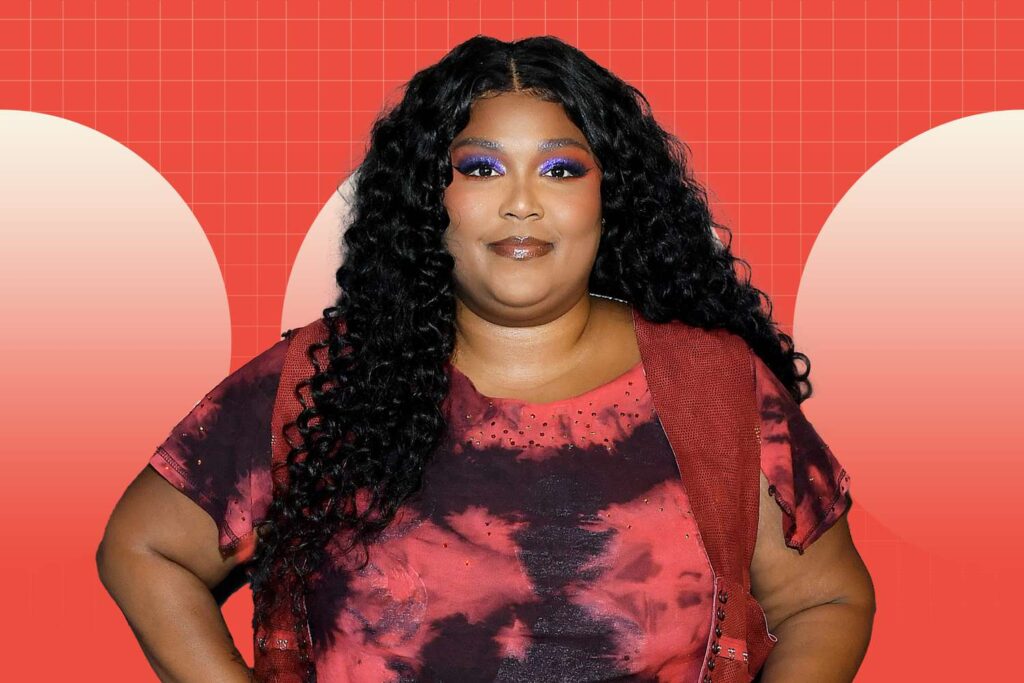Lizzo is having a big year—the singer just took home her first Emmy, dropped her own line of shapewear and announced a new documentary coming to HBO Max. The flautist-singer-dancer is currently on the road with her first arena tour, but that busy schedule hasn’t been enough to keep folks from focusing on her weight instead of her work.
In Vanity Fair’s November cover story, Lizzo opened up about the relentless energy online trolls seem to have when it comes to criticizing her looks. Back in 2021, she went on Instagram Live after a user lashed out with a racist, fat-phobic comment on one of her posts. “Sometimes, I feel like the world just don’t love me back,” she said during her live post. Speaking about that comment to Vanity Fair, Lizzo said she wasn’t about to reveal what exactly that commenter said—”then people will know what really hurt me,” she explained.
“People have been calling me fat my entire life, but that was the first time seeing an insult of how I looked, who I am, and my music wrapped into one, and it really hurt me,” she said. “And if one person says it, then another person says it, it multiplies like a f—ing virus. If enough people on the internet start echoing sentiments about you, it becomes part of your public persona and it’s out of your control.”
It’s bad enough to whittle someone’s worth down to their looks, but that behavior gets even more toxic when combined with the racism and vitriol that always seems to find its way to Lizzo. And if people end up conflating their personal feelings about Lizzo’s weight with her music, her point of view is pretty clear: “I don’t care!,” she said.
As for her personal health, the rising star says she feels just fine—mentally and physically. She’s been eating a vegan diet since 2020 and has developed a healthy relationship to food and weight that she wishes other people could internalize.
“I lead a very healthy lifestyle—mentally, spiritually, I try to keep everything I put in my body super clean. Health is something I prioritize, wherever that leads me physically …,” she told Vanity Fair. “It sucks that we associate weight gain with the negative thing that causes it. It’s mixing this beautiful thing that’s food—and nourishing ourselves with it, but it’s the stress that’s the bad thing, not the 20 pounds. I feel very lucky because I don’t feel that weight gain is bad anymore. Nor is weight loss—it’s neutral. And food is fun. I love eating, and I have a chef now, and I’m not thinking about it. I had a brownie last night.”
Thinking of food in terms of fun and nourishment is a deliciously healthy way to consider your eating patterns. Some folks choose to think about it in terms of intuitive eating—listening to your body’s indications of hunger and fullness and rethinking any negative, rigid rules you may have had about eating in the past. It can be a mentally and nutritionally healthy way to approach your plate, especially if you try to eat a variety of foods, including proteins, fruits, veggies, healthy fats and grains.
But no matter how you choose to eat—or how anyone else chooses to eat—we at EatingWell know it’s not helpful to share unsolicited advice or opinions about other people’s health or looks online. If you wouldn’t want something said about you, it’s a good rule of thumb not to say it about anyone else.
Up Next: Why It’s Actually Rude to Compliment Someone’s Weight Loss, According to a Dietitian

